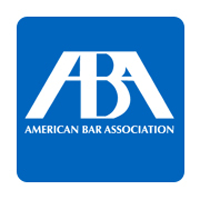As 'deeply flawed' revised persuader rule takes effect, ABA joins in effort to block it

For 50 years, federal labor law requiring employers to disclose the involvement of consultants in attempts made to persuade employees not to unionize has included a broad exception for attorney-client communications.
That changed Monday, when a revised version of the so-called persuader rule took effect. It applies to arrangements, agreements, and payments made on July 1 and thereafter, explains a Department of Labor news release about the revised rule.
The National Law Review provides a link to the 446-page revised rule (PDF) published in the Federal Register. A DOL page provides a link to the Labor-Management Reporting and Disclosure Act of 1959, which forms the basis for the rule.
However, a years-long battle to prevent the rule change is not yet over.
At the end of March, a group of lawyers filed suit in federal court in Minnesota, and a group of businesses filed suit in federal court in Texas over the rule revision, according to Courthouse News and Reuters.
And on Wednesday the American Bar Association joined others in asking federal lawmakers to reconsider the revised rule.
Although there are a number of ways in which the rule is “deeply flawed,” the overarching concern of the ABA is the negative impact it will have on attorney-client privilege, says ABA President Paulette Brown in written testimony (PDF) submitted for a Wednesday hearing by a U.S. House subcommittee.
She urged lawmakers to reinstate the DOL’s previous long-established interpretation of how the reporting requirement of Section 203(b) of the LMRDA, which applies to attorneys along with consultants and independent contractors, is modified by Sections 203(c) and 204. These provisions exempt advice and attorney-client communications, and Brown said the current rule flouts legislative intent by eviscerating the exemptions.
“Lawyers should continue to be exempt from the persuader rule’s disclosure requirements when they provide advice or other legal assistance to their employer clients that is designed to help the employer to persuade its employees on unionization issues, without any direct lawyer communication with the employees on these issues,” she writes.
Former ABA President Wm. T. (Bill) Robinson III has previously opposed the rule revision, and was a scheduled witness at the Wednesday hearing by the Subcommittee on Health, Employment, Labor, and Pensions of the House Committee on Education and the Workforce.
Bloomberg BNA’s Daily Labor Report and The Hill recount comments made the Wednesday hearing, in which lawmakers split along party lines.
“This is an attack on the fundamental right of employers to seek legal advice,” said Rep. David P. “Phil” Roe (R-Tenn.), the subcommittee’s chair. He also expressed concerns that the revised rule could chill free speech by employers and curtail their ability to communicate with workers as unions are seeking to organize them.
“Many employers, acting in good faith, seek outside advice to ensure they’re in compliance with the law when communicating with their employees about union elections,” Roe said.
The ranking Democrat, Rep. Jared Polis of Colorado, said it is important to inform workers who is being hired by employers and what is being spent to discourage union formation. As they help companies script their arguments, anti-union consultants “operate in the shadows,” he said.
Polis said unions already have to file considerable amounts of paperwork as they meet federal disclosure requirements, so the revised rule simply levels the playing field.
However, committee member Rep. Bradley Byrne (R-Ala.) predicted that the revised rule will have a different effect, the Bloomberg BNA article reported.
If attorney-client communications must be disclosed, “then the employer is not going to say anything,” Byrne said. That, he contends, is what unions want—“for employers to say nothing.”



